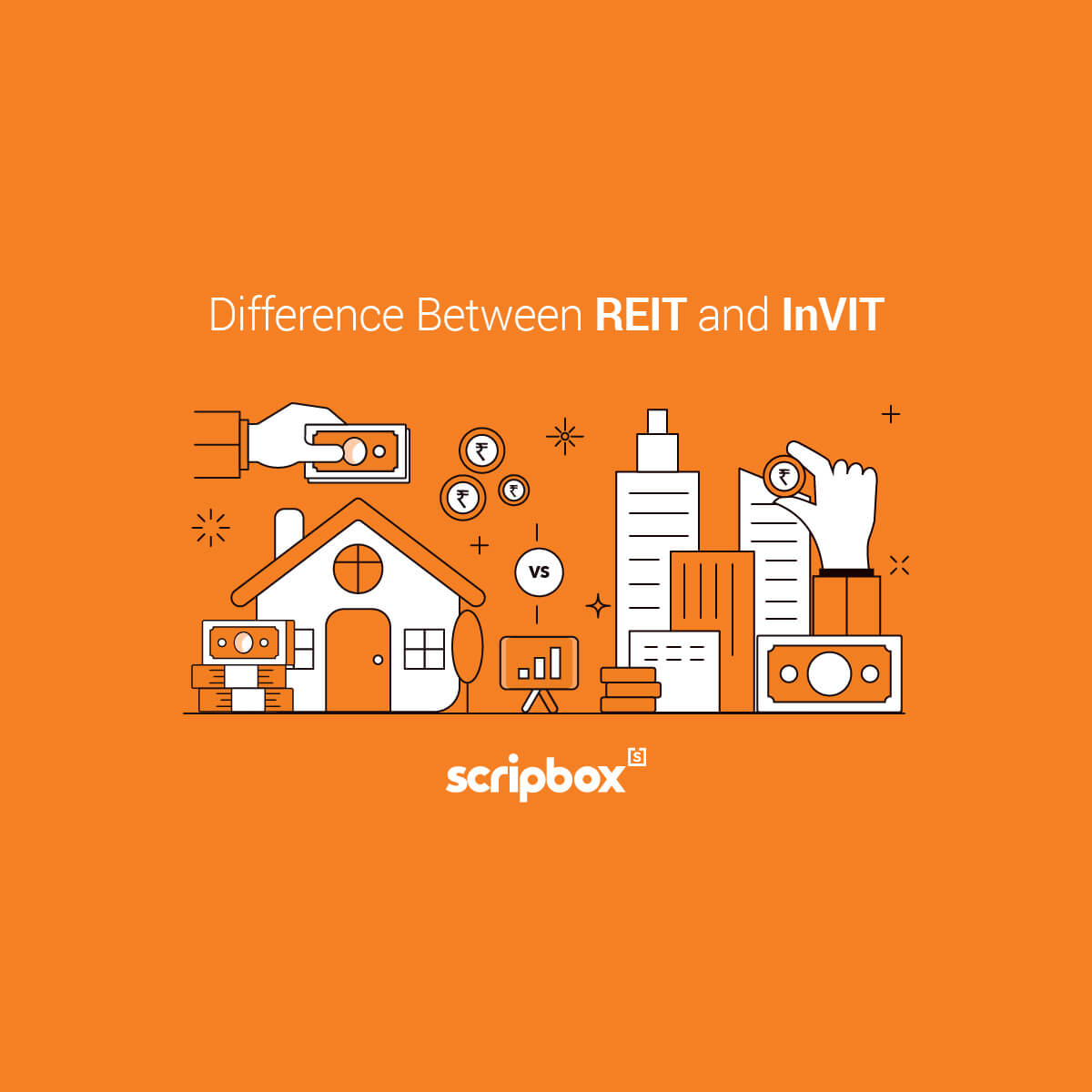Initial Public Offering (IPO) is an excellent way for investors to participate in the company’s growth. It is the first time the company sells its shares to the public, and you can subscribe to it. The process for applying for IPO has undergone a massive change. You can apply for IPO online or offline in a few minutes. Here we will understand the different ways how to apply for IPO.
How to Apply for IPO?
Anyone who wants to apply for IPO must hold a valid PAN Card number and require a demat account, trading account, UPI ID, and bank account. If you are a retail investor, you can invest up to INR 2 lakhs in IPO. Above INR 2 lakhs belong to HNI and institutional investors category.
Read more What is Demat Account?
You can apply for IPO either online or offline methods
Online
Through Net Banking
- Firstly, log in to your respective bank’s net banking portal.
- After logging in, look for the ASBA tab or IPO application tab.
- Select the ‘Apply IPO’ option and choose the company IPO you wish to bid for.
- Enter the required details like PAN, price, quantity, and demat account number.
- Submit the application. It is important to note that submitting the bid before 2 PM on a business day will be accepted for the same day. However, if the bid is placed after 2 PM, the bid is considered for the next day.
Through a Broker
- Firstly, visit your broker’s website or app and log in to your demat account.
- Look for the IPO section and click on it.
- A list of companies will appear whose IPO is open. Select the company for which you want to place the bid.
- Enter the lot size and the bid price. If you want to increase the chances of allotment, bid at the cut-off price or the maximum price at the upper end of the price band.
- The next step is to enter your UPI ID and click on the ‘Submit’ button. However, you need to approve the transaction on your UPI app, which the exchange will approve later.
- The mandate notification will appear on the UPI app. Also, the money remains blocked until the IPO allotment date.
Offline
If you are uncomfortable with the online application for IPO, you can also apply offline.
- Firstly, you need to visit the nearest branch of your bank or broking firm.
- Fill out the ASBA form and provide essential KYC details.
- After submission, the funds will be blocked. Only after the allotment process if you receive the shares, the amount debits from your bank account.
What is ASBA?
ASBA stands for Application Supported by Blocked Amount. SEBI developed this application to simplify investing in IPOs. ASBA has the authority to block the IPO application amount in the bank account. Also, you cannot use the blocked amount for any other purpose. However, you will continue to earn interest on the blocked amount. Moreover, if you are a non-retail investor applying for an IPO, it is mandatory to apply through ASBA.
When you apply for IPO through ASBA, the money gets debited from the bank account only if the application is selected for allotment. Otherwise, you will receive the money back in your bank account if you do not get the IPO issue or if you withdraw the issue. Moreover, since 2016, SEBI has made it mandatory to fill out the ASBA form while applying for an IPO.
Eligibility to Apply for IPO Through ASBA
As an investor to apply for IPO conveniently through ASBA, the following are the eligibility criteria –
- You must be an Indian citizen.
- Hold a valid PAN card number.
- Must have a demat account and online trading account
- You must apply through a Self Certified Syndicate Bank with which you maintain a bank account.
- The bank account must have enough balance to facilitate the blocking of funds.
- You can place a maximum of three bids, but you have to fill in the quantity if you bid at the cut-off price. Moreover, retail investors can only bid for an amount equal to or less than INR 2 lakhs.
- You cannot apply under the reserved category.
- You cannot revise the bid after placing it.
Self-Certified Syndicate Bank (SCSB)
A Self Certified Syndicate Bank is a commercial bank that provides and supports ASBA-based IPO applications. The list of these participating banks is available on the official SEBI website.
Procedure to Apply for IPO through ASBA
The following is the procedure to apply for IPO through ASBA, either online or offline –
Online
- Firstly, visit your respective bank website and log in to your net banking.
- Navigate for the ‘Demat Services’ section or the ‘IPO Application’ Section.
- Click on the new IPO and select the IPO name from the list of open issues.
- Enter the lot size, bid price, and demat account details, and submit your bid.
- Approve the mandate request you will receive from the bank to block the amount.
- The application is accepted, and an application ID is generated. Also, the bank blocks the bidding amount until the allotment process. If you do not receive the allotment, the amount is unblocked and reflected in your bank account.
Offline
- To apply for IPO offline, you have to fill out the ASBA application form.
- You can download the ASBA e-form from the National Stock Exchange (NSE) or the Bombay Stock Exchange (BSE) website.
- After downloading the form, fill in the required details and submit it at your nearest bank branch or the stockbroker.
- Also, submit a cheque for the desired amount along with the form.
- After submission of your form, the bank uploads your application to the bidding platform. Ensure that the information in the form is 100% correct, or else the application will be rejected.
- Finally, after successfully uploading the form, the desired amount will be blocked in the bank account until the allotment process.
Read about Bombay Stock Exchange (BSE).
Advantages of Applying through ASBA
The following are the advantages of applying through ASBA –
- Hassle-free: Applying for IPO through ASBA has become very easy. All you need to do is log in to your bank account, select the IPO to apply, enter the quantity and price and invest. Thus, it takes a few minutes to complete the IPO application process.
- No Loss on Interest: You will continue to earn interest on the blocked amount when you apply through ASBA. This is because the investment amount is deducted after the allotment date. Moreover, the bank considers the blocked amount while calculating the quarterly balance.
- Paperless: The application process is paperless, where you need not submit any document, cheque, or demand draft. Also, the bank account is KYC compliant, and you do not require additional documents.
- Zero Charges: This service is free and has no hidden costs. Thus, all Self Certified Syndicate Banks offer free ASBA services to investors. However, you need to activate the net banking feature.
- Quick Refunds: Investing through the ASBA application makes you feel secure about your money. You will receive the funds in the bank account immediately if you do not get the allotment. Also, when you withdraw the IPO application, you will receive the funds immediately to the bank account.
- Safeguarding your Money: The IPO company cannot access your funds until you receive the shares to the demat account.
Frequently Asked Questions
As per the guidelines of the Securities and Exchange Board of India (SEBI), a retail investor can bid shares up to INR 2 lakhs in an IPO. Thus, you can place a maximum of 3 bids in the IPO application. However, you need to place each bid within the price range, and the quantity shall be multiple of lot size. Also, the amount blocked will be the highest among the three bids.
There are no charges or fees applicable when you apply for an IPO. You only need to provide your details. The investment amount is debited, and shares are credited to the demat account when shares are allotted.
You can withdraw or delete the IPO application before the subscription period closes. To withdraw the application, log in to your demat account, go to the order book, select the IPO and withdraw or delete it. The blocked amount will be released in a day or two. However, if the subscription period closes, you cannot withdraw or delete your IPO application.
You can place the bid for an IPO application either online through a net banking/demat account or offline by visiting your bank/stockbroker. While filling out the ASBA form, you must specify the quantity of stocks and bid price.
Yes, you can cancel the IPO application before the subscription period ends through your broker or bank. However, if you wish to cancel your IPO application after the subscription period, you need to submit a written request to the Registrar via email along with application details. The Registrar will consider the cancellation request but it receives the request before the allotment process.
You cannot modify your IPO bid after accepting the UPI mandate. However, if the subscription window is still open for bidding, you can cancel the IPO bid and apply for a new one.
Yes, you can withdraw the ASBA bids within the subscription period. You can approach the same bank where you submitted the ASBA application and request withdrawal through a letter mentioning the application number. If you have applied online, you can go to net banking, go to the order book, select the IPO and withdraw. The blocked amount will be released in a day or two.
Yes, a beginner can invest in an IPO. Investing in IPO has become seamless and effortless with a few simple steps. However, investors must understand that returns are not guaranteed. Also, one must keep track of the company’s growth and fundamentals.
You can sell the IPO shares only when the market opens on a listing day. In other words, you can sell them on or after the market hours begin or on any other day. However, you cannot sell the IPO shares before listing.
Investing in IPO is like investing in equities. It can generate potential returns over the long term if the company has strong fundamentals. Therefore, only if you believe that the company has growth potential, you can continue to hold the IPO for the long term.
Discover More






















Show comments